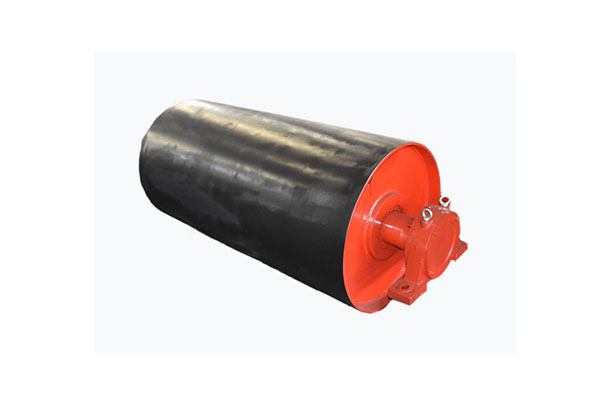DT Ⅱ type B650 belt conveyor with a diameter of 630 and a reversing drum
Type: Reversing drum
Diameter: 630
Length: Complete models available for customization
Weight: 347
Applicable Machinery: Large Mining Belt Conveyor
Applicable bandwidth: B=650mm
Introduction: The function of the reversing drum is to change the winding direction of the belt, so that the belt forms a closed loop. The reversing drum can be used as the tail drum of the belt conveyor, forming the tensioning drum of the tensioning device and causing the belt to change direction at different angles; 2. The conveyor belt can be compressed to increase its size
Product Details
Change direction roller function
- Change the winding direction of the belt to form a closed loop. The reversing drum can be used as the tail drum of the belt conveyor, forming the tensioning drum of the tensioning device and causing the belt to change direction at different angles;
- The conveyor belt can be compressed to increase its wrap angle with the drive drum.
The application scope of the transmission drum includes mechanical, metallurgical, mining, port and dock, chemical and pharmaceutical, cement and building materials, steel, coal mining and other fields. It is a driving device for various mobile belt conveyors and can also be used for certain fixed belt conveyors.
About the rubber coated roller
The rubber drum is an important component and constituent part of the belt conveyor transportation system. The rubber coating of the drum can effectively improve the operation of the conveyor system, protect the metal drum from wear, prevent the conveyor belt from slipping, and ensure the synchronous operation of the drum and belt, thereby ensuring the efficient and high-capacity operation of the belt. The rubber coating of the drum can effectively prevent sliding friction between the drum and the belt, reduce material adhesion on the surface of the drum, and thus reduce belt deviation and wear. It is widely used in industries such as steel, metallurgy, coal, cement, power generation, fertilizer, grain storage, and ports.
Reverse roller technology
The rubber wrapping drum technology can be divided into two categories. Traditional rubber wrapping techniques, such as hot vulcanization, mainly use vulcanization tanks to vulcanize the rubber with the drum to ensure the bonding strength between the rubber wrapping panel and the drum. The second type is cold vulcanization technology, which uses a special cold vulcanization method to directly bond the drum and the rubber wrapping panel, allowing for on-site and underground rubber wrapping. This technology is more advanced and greatly reduces labor costs.
The reversing drum is used to change the direction of the conveyor belt or increase the wrap angle between the conveyor belt and the drive drum.
 Hebei Hengya Conveyor Equipment Co., Ltd
Hebei Hengya Conveyor Equipment Co., Ltd